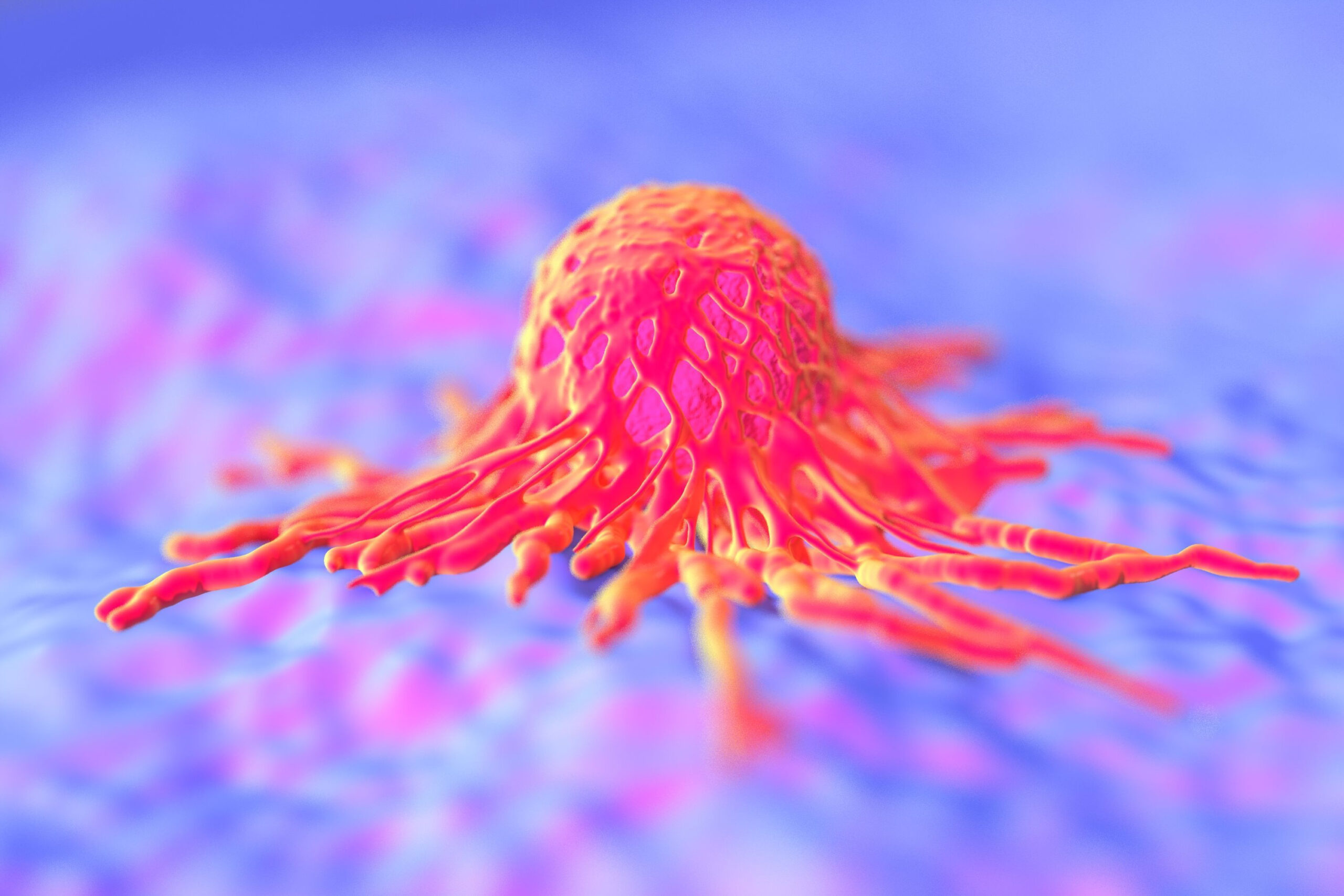Singapore ramps up cancer fight with S$50 million in national grant funding for Precision Oncology
Published: 25 May 2024

Photo captions: Cancer cell or tumor illustration in high details
The team includes Professor Chng Wee Joo, Provost’s Chair Professor at the Yong Loo Lin School of Medicine, National University of Singapore and Vice President (Biomedical Sciences Research), Office of the Deputy President (Research and Technology), National University of Singapore, Associate Professor Ng Siok Bian from the Department of Pathology, Professor Ashok Venkitaraman and Assistant Professor Anand Jeyasekharan from the Cancer Translational Research Programme (N2CR) and the Department of Medicine at the medical school.
The S$50 million support for cancer research establishes the SYMPHONY 2.0 (Singapore lYMPHoma translatiONal studY 2.0) and Colo-SCRIPT (Colorectal cancer subtype-specific research informs phenotypes, diagnostics & treatments) research programmes to drive precision oncology research in Singapore aimed at improving the understanding, diagnosis and treatment of lymphoma and colorectal cancer.
SYMPHONY 2.0 – Improving outcomes for Asian-centric lymphomas
SYMPHONY 2.0 programme will focus on five thematic areas, with the goal of delivering three key projects – establish a Lymphoma Atlas that centralises patient data for research, determine effective drug combinations for lymphoma patients in clinical trials using AI, and improve accessibility to CAR-T Cell therapy through proof-of-concept studies.
SYMPHONY 2.0 is a continuation of 10 years of work by this group, under the Translational and Clinical Research (TCR) Flagship Programme and SYMPHONY 1.0, which has laid the groundwork to establish Singapore as a hub of translational and clinical expertise in lymphomas.
The group has published over 100 studies on Asian-centric lymphomas in top ranked scientific journals, augmenting understanding of the disease. They have also developed enhanced diagnostic and prognostic tools to guide clinical decision-making and identified biomarkers for response to therapeutics that have been incorporated into clinical assays. In addition, they have trained a genomic model to determine the prognosis of NKTCL patients more precisely.
Colo-SCRIPT – Harnessing the biology of each subtype of Colorectal Cancer to develop strategies, tailored to each subtype, for prevention, early detection and treatment
Colo-SCRIPT is the first national CRC research programme. Leading up to this programme, the clinicians and scientists in the Colo-SCRIPT team have published research findings in high impact journals, such as Nature Genetics, refining the molecular classification of CRC.
Using state-of-the-art techniques such as single cell analyses to profile the patients’ tumours at high resolution, they are beginning to resolve the complex nature of the tumours and reveal how one tumour may be different from the other, and how clinicians may exploit the uniqueness of an individual’s tumour to better tailor precision treatment.
As a start, the team is currently evaluating biological features that can be purposed either as blood tests for cancer detection or new drug targets for the different cancer subtypes. More recently, the team has embarked on the use of AI-guided endoscopy for detection of early lesions, particularly of the more aggressive subtypes. The findings can guide the better management and follow-up of individuals harbouring the pre-cancer lesions.
The Colo-SCRIPT research programme seeks to harness insights on the distinct biology of different molecular subtypes in CRC to guide subtype-specific prevention, diagnosis, and treatment of disease. The programme will enrol two national cohorts: SCRIPT 1 and 2 in early and late-stage disease respectively. Through five thematic areas (pre-cancer, molecular epidemiology, cellular vulnerabilities, immunotherapy, and diagnostics), the programme will translate research findings to 2 key clinical applications termed “receptables”: (1) improve the prevention and detection of CRC as a long-term strategy for reducing CRC incidence; and (2) bring new drugs into clinical trials for improving treatment outcomes for advanced colorectal cancer patients.
For more details, please refer to the media release here.

